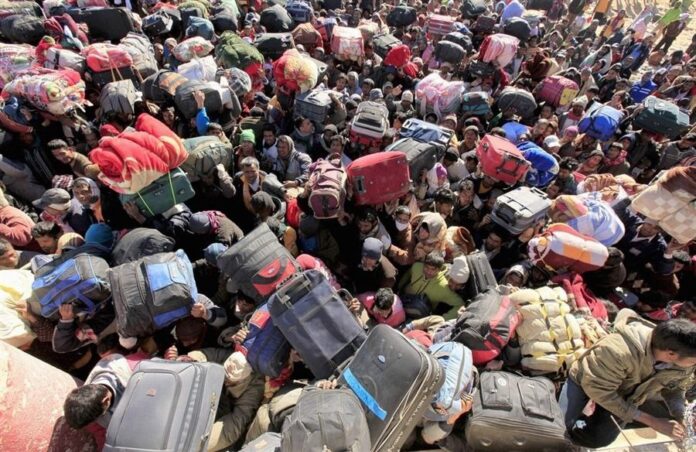On January 13 Latvia’s state border guard initiated criminal proceedings against two members of the human rights organization, ‘I want to help refugees’ (Gribu Palidzet Begliem) including its head, author and sociologist Ieva Raubisko.
The State Border Guard has initiated criminal proceedings against the representatives of the “Gribu Palidzet Begliem” in accordance with Section 285, Paragraph 2 of the Criminal Law, namely, for the illegal movement of persons across the border. As of now, their status is identified as “people against whom criminal proceedings have been initiated”.
They had travelled to the border of Latvia and Belarus to ensure that five Syrian asylum seekers received humanitarian assistance according to an injunction issued by the European Court of Human Rights.
According to the information published by the Gribu Palidzet Begliem organisation webpage, Ieva Raubisko received the communication from the European Court of Human Rights on January 11, 2023. The court announced in the letter the interim measures in the case “M.A. and others v. Latvia”. The Court demanded from Latvia that they should not expel this group of Syrian citizens from the territory of Latvia until February 8, 2023. The Court also obliged Latvia to provide those people with food, water, clothing, adequate medical assistance and temporary housing.
Those Syrian citizens had previously approached the Latvian organisation with the request for help stating their fear for their lives. The organisation states that Ieva Raubisko and her colleague went to the Latvian-Belarusian border on January 13 to ensure that the ECHR interim measures would be complied and that those Syrian citizens would received the necessary humanitarian assistance.
Representatives of Gribu Palidzet Begliem met those Syrian citizens who the decision by the ECHR referred to. It happened in the territory of Latvia. They called the emergency medical services as well as informed the State Border Guard of Latvia on what was happening. The border guards arrived at the scene after the phone call from human rights defenders, the organisation states.
Gribu Palidzet Begliem turned the case of those Syrian citizens to the ECHR together with the Lithuanian human rights organisation “Respect. Protect. Fulfil”. On January 17, the Lithuanian organisation stated on the FB page, “Ieva Raubisko and Egil Grasmanis went to the border area to rescue people during the night of January 12 and January 13. When they found five out of seven members of the group, they were all in critical condition. Two of them got urgent medical assistance and all of them were permitted to stay in Latvia. This is a big victory”. At that, the organisation stresses, “The Latvian State Border Guard has opened a criminal case accusing human rights defenders of allegedly moving people illegally across the border”. The colleagues of the Latvian human rights defenders tell in their statement that they do not see any reasons for the criminal case to be opened. They also tell of their condemnation of the decision to target Raubisko and Grasmanis describing the situation as “prosecution of Latvian human rights defenders”.
The Court of Justice of the European Union, in a similar case ruling on Hungarian laws, the content of which created a theoretical risk of human rights activists being criminally punished for helping border crossers to apply for asylum, declared such laws to be incompatible with European Union law, drawing attention to the fact that even purely theoretically possible criminal penalties have a detrimental effect on the protection of human rights (Case C-821/19 of 16 November 2021).




















